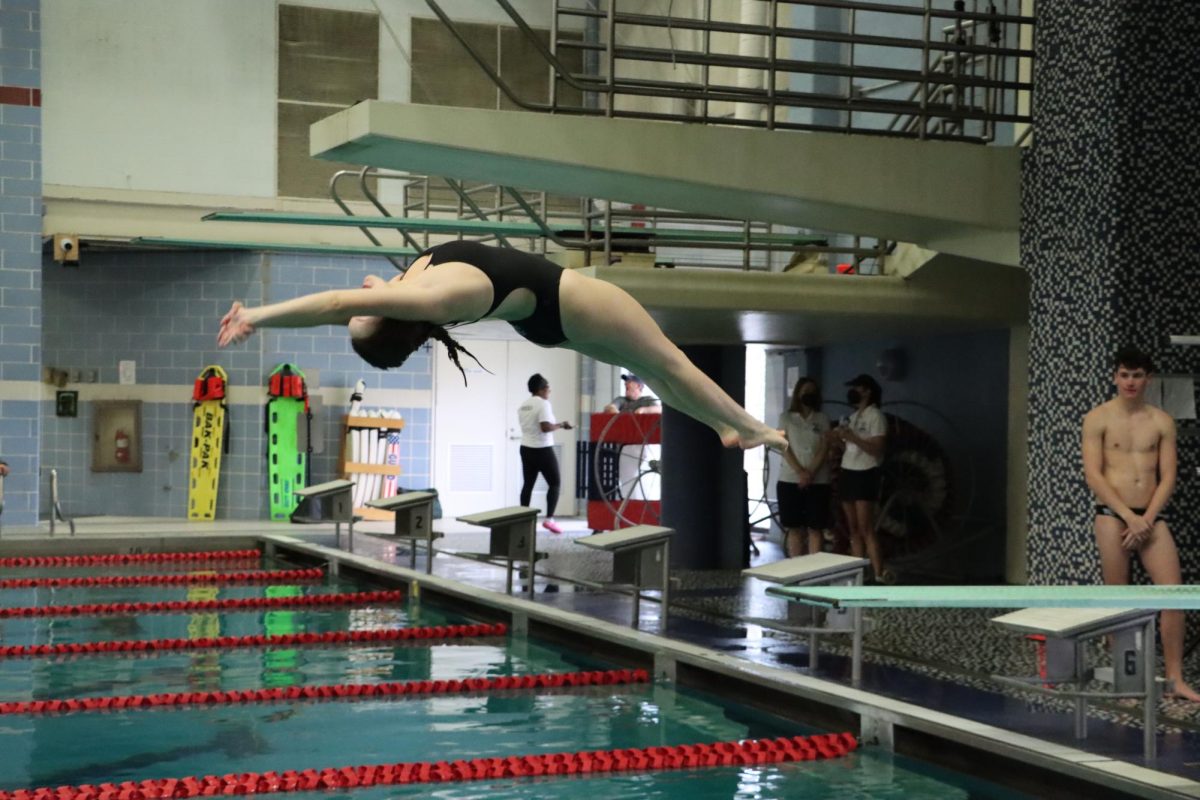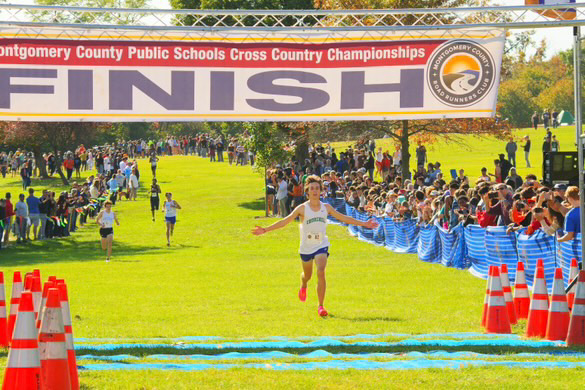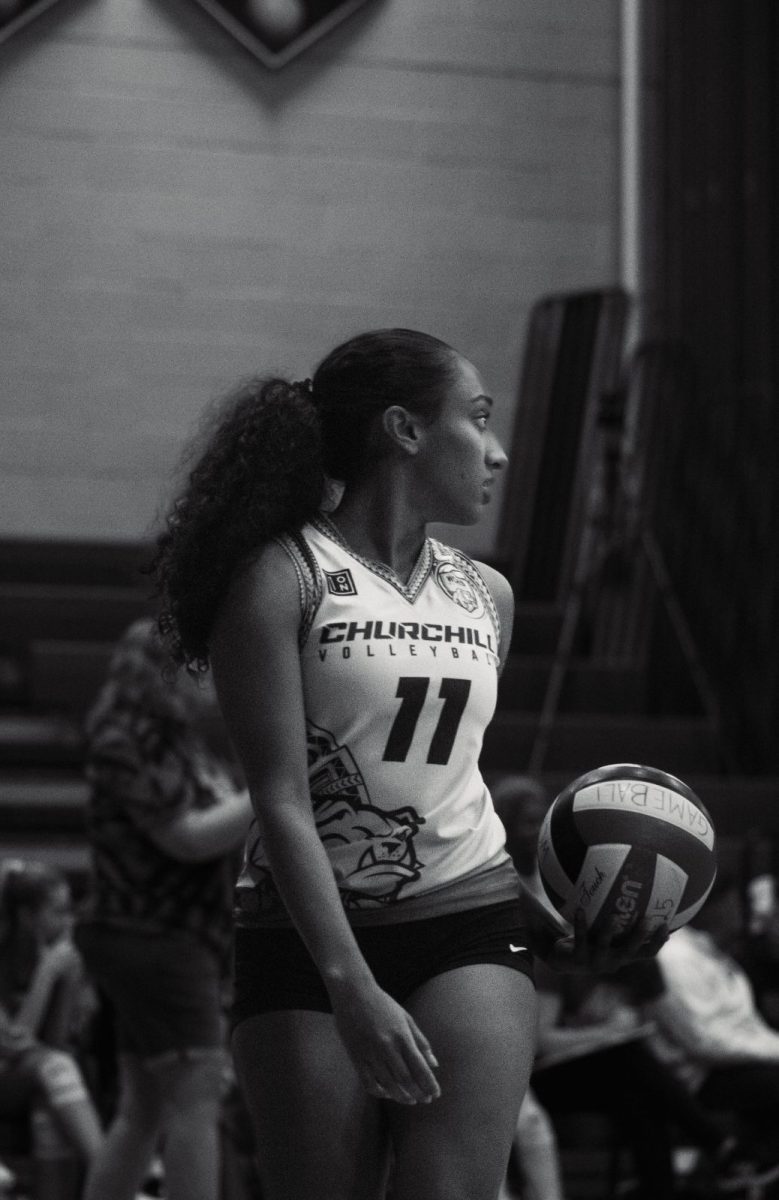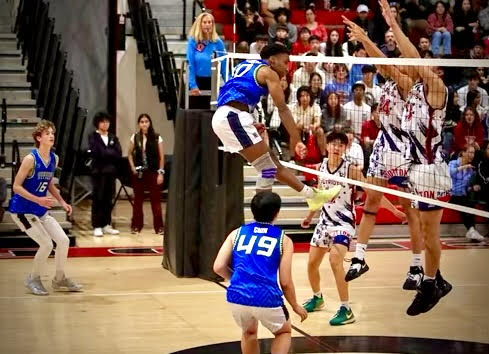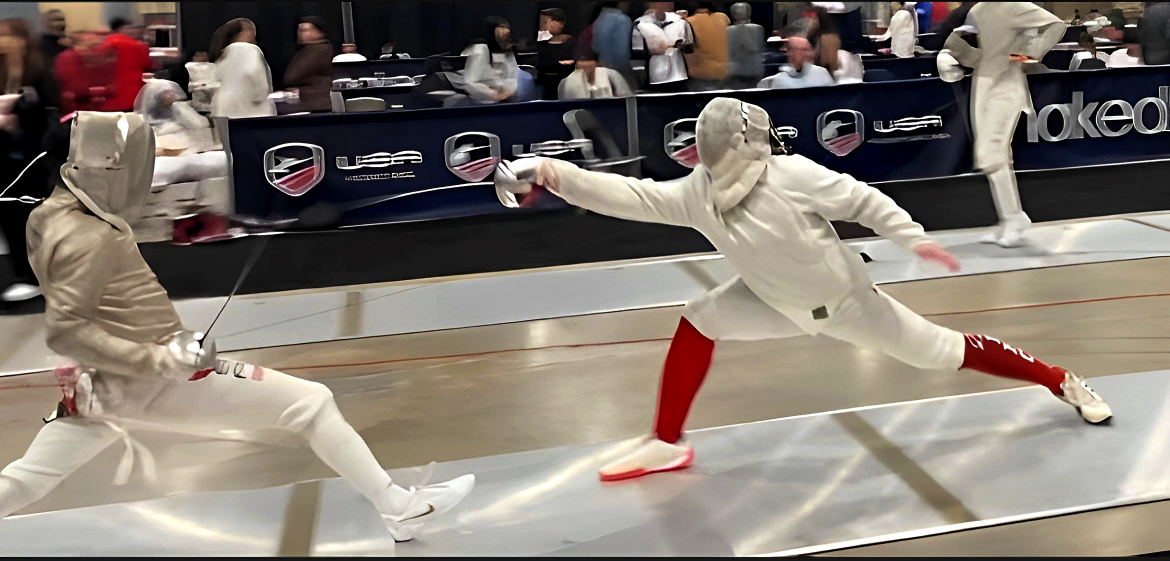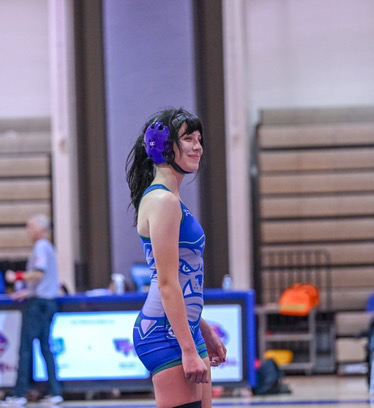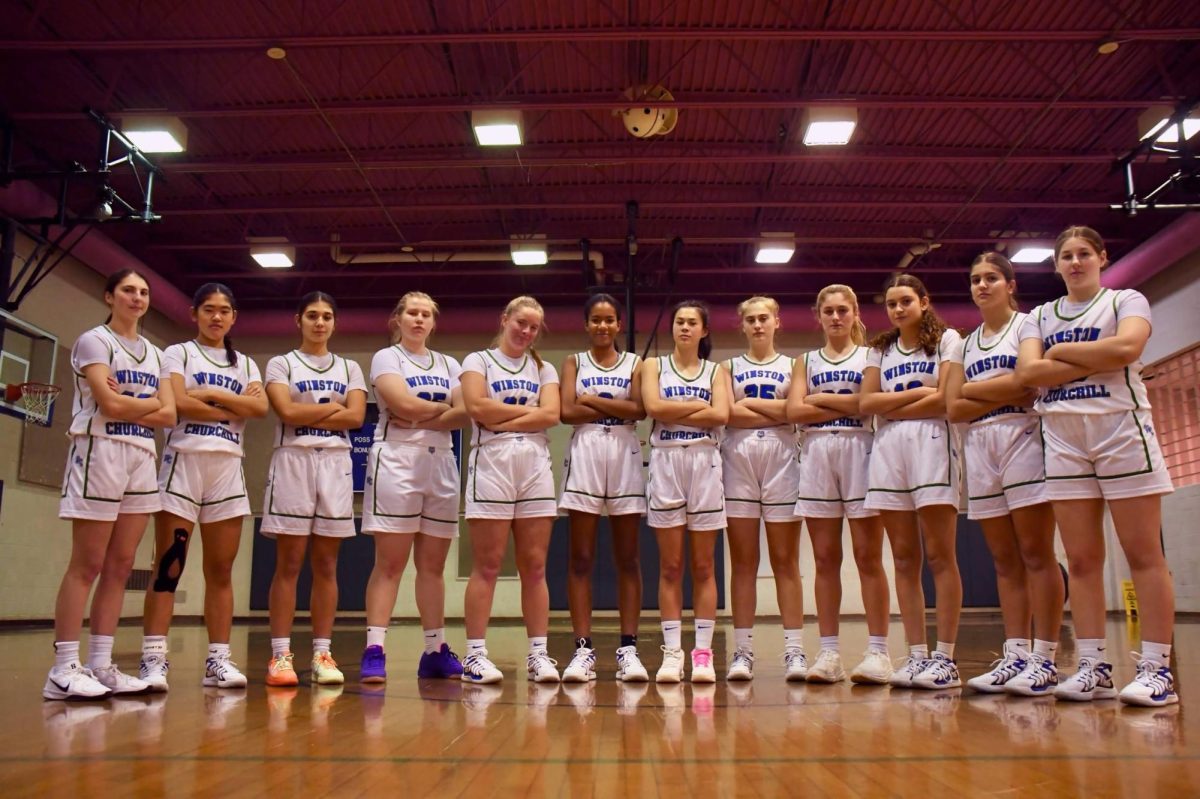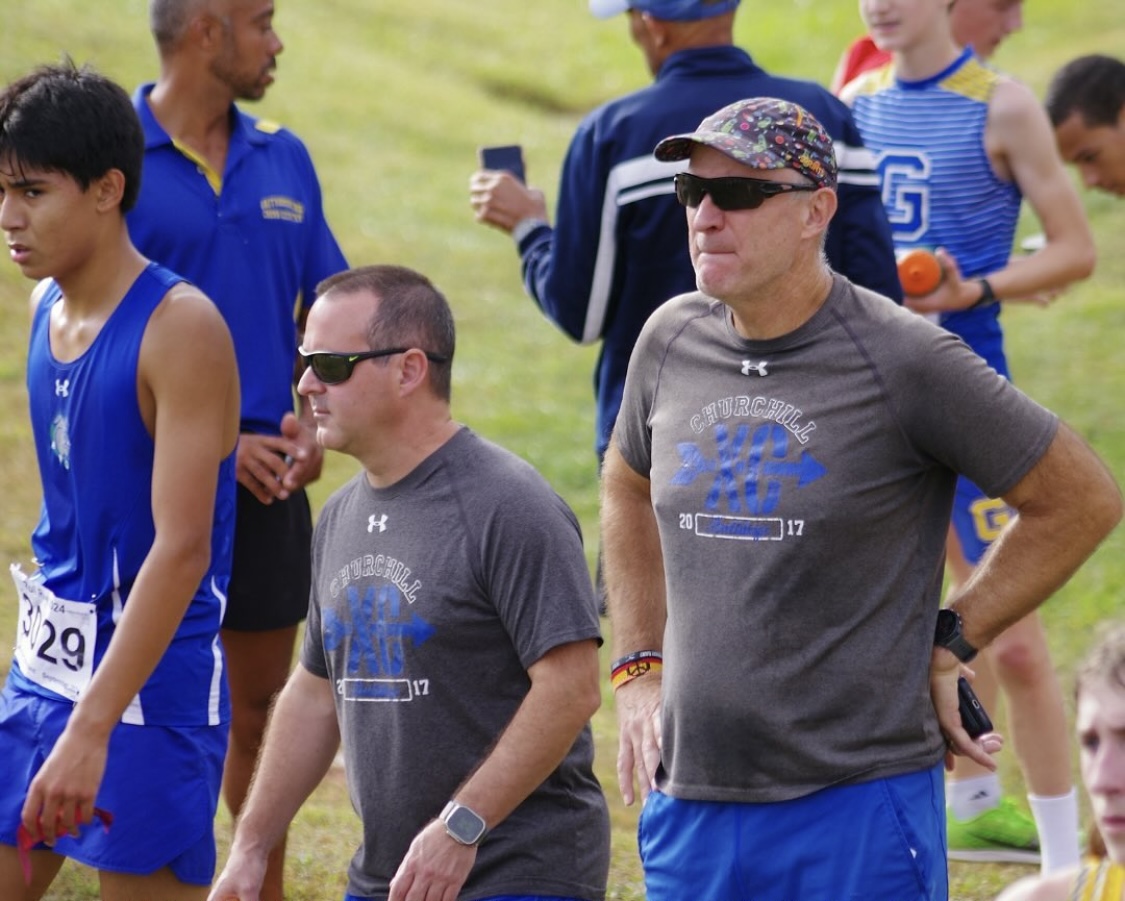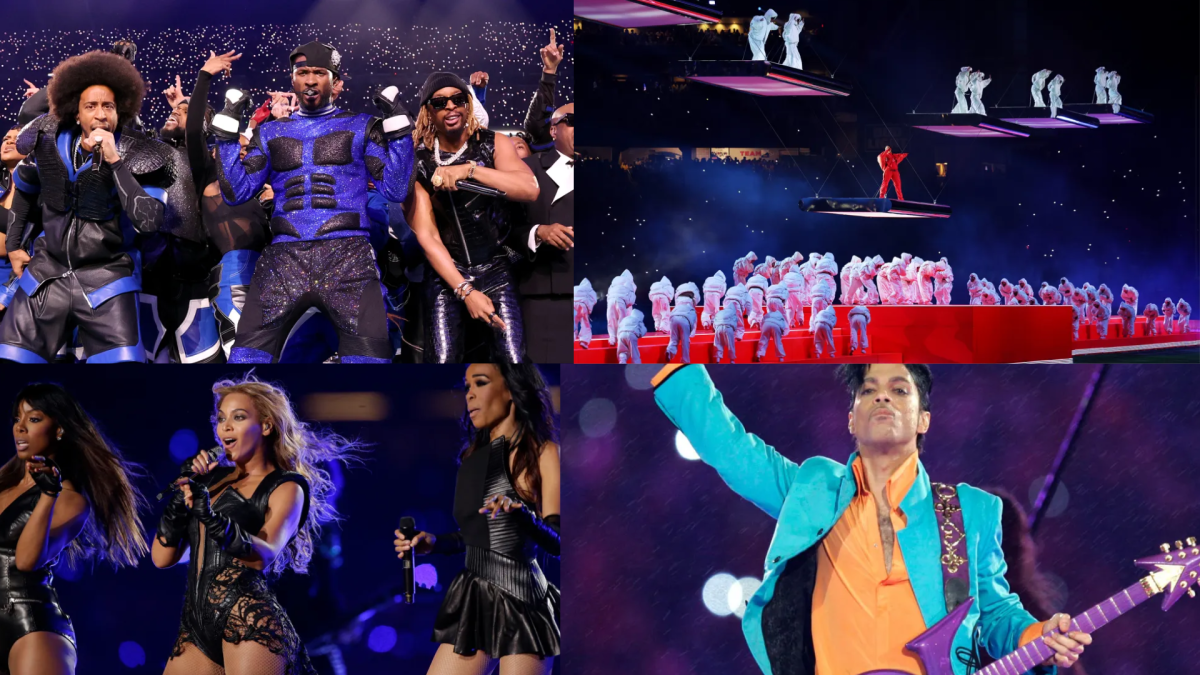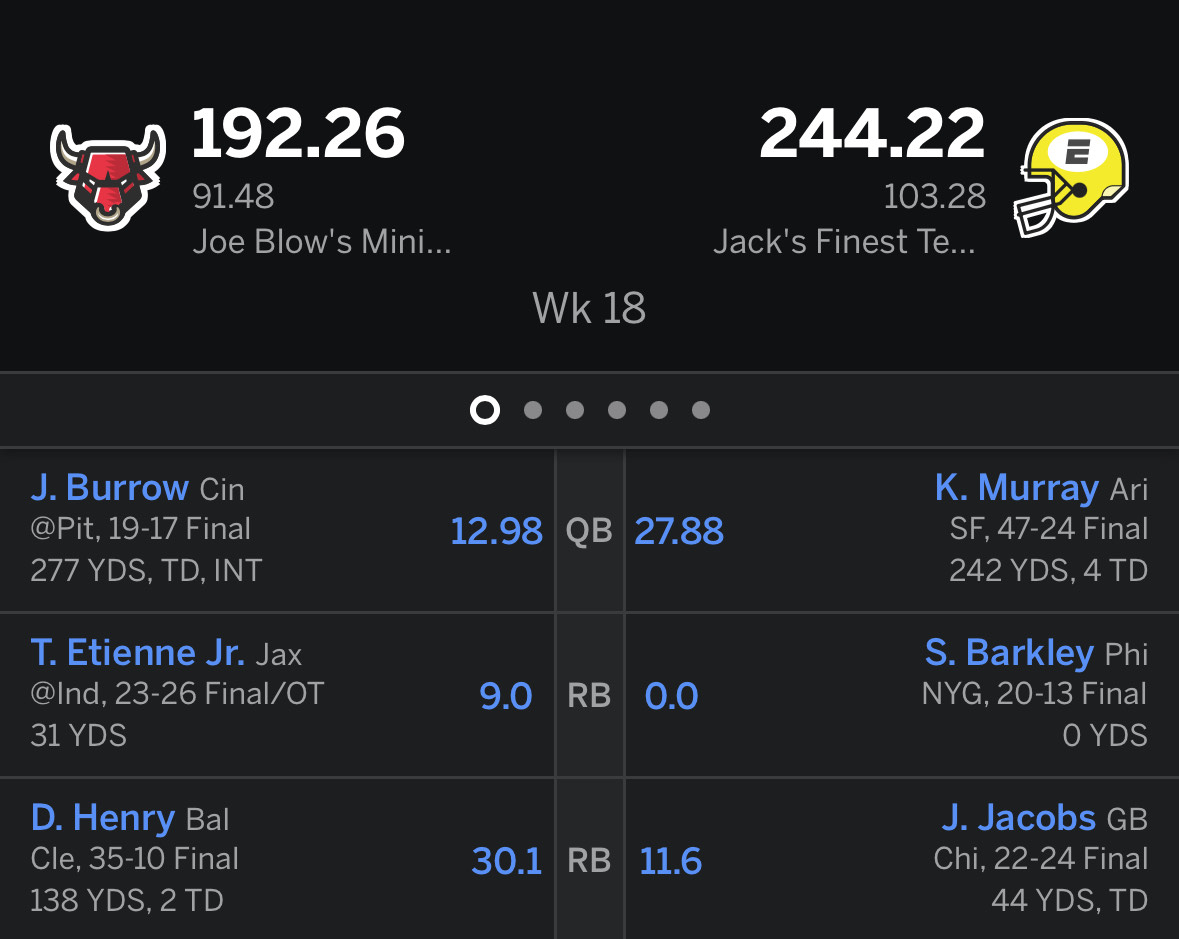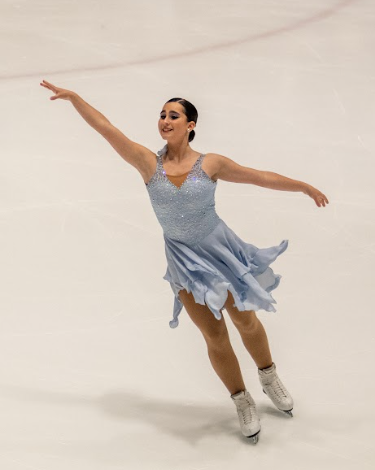
When WCHS senior Kira Bernstein is on the ice, it looks like she is flying. Whether it’s a grueling practice at the rink or under the spotlight in France, with each swerve and glide, Bernstein manages to capture the grace and whimsy of skating.
“When we start gaining speed and momentum, it starts to feel like a fever dream,” Bernstein said. “Especially during a competition, with the bright lights and my makeup done, the adrenaline kicks in and I feel free.”
Bernstein started ice skating when she was three years old, following in her older sister’s footsteps. Although she was originally not the biggest fan, her private coach introduced her to synchronized (synchro) skating and she quickly fell in love with that variation. Over the past fifteen years, Bernstein has progressed from performing on an exhibition team to representing Team USA via DC EDGE’s junior team.
“Synchro is similar to a group dance — but on ice. There are around sixteen people and competitions revolve around programs with different elements,” Bernstein said. “Individually, we do different turns and twizzles, but we have to be completely in-sync with everybody else. I’m constantly thinking about timing, speed moderation and ensuring I’m staying in line.”
Elements can range from blocks (where skaters are arranged in parallel lines) and wheels (where skaters rotate around a common center point) to spins (where skaters perform the same spin in unison). Oftentimes, these elements increase in difficulty by adding pivots or changing rotational direction, which requires intense physicality.
“For certain programs, we have to lift another skater into the air while continuing to glide on the ice,” Bernstein said. “We need upper body strength in order to do those lifts, leg strength for knee bends, core strength for stability and flexibility, endurance for the ability to do the entire performance effortlessly, and more. I usually spend six days a week skating on the rink, conditioning at the gym and practicing pilates.”
Although considered a sport, skating can also be viewed as an artform. Showcasing one’s technical elements is a large component of a program’s score, but interpreting the theme in a meaningful way can elevate a performance.
“My favorite part of skating is expressing myself through the music,” Bernstein said. “My team creates a universal story based on the song we pick, but everybody has a personal connection that reveals itself in subtle ways. For example, our 2023 Nationals performance had a ‘Clue’ theme, and it was harder because it was mostly instrumental music. However, we centered our story around a murder mystery, and through each piece and tone switch, we established different characters and a timeline of what happened.”
Synchro is inherently collaborative but, as with any sport, elements of competition and individualistic thinking can permeate through skating culture.
“There is a lot of stress during tryouts because everybody wants to progress and make the higher level team. This cutthroat environment is fostered by our coaches, who often show favoritism or motivate us through harsh comments,” Bernstein said. “They say things like ‘You don’t deserve to be here’ or ‘Your skating is like a sumo wrestler.’ It’s like Dance Moms. They make you feel very self-conscious, but because of that, I learned to get out of my shell and take insults.”
As a result, Bernstein has developed strategies to deal with the stress that stems from the team dynamic and the stress that comes from being a student-athlete.
“My mindset is to focus on my own skating and to be the best I can, instead of caring about how I rank next to other skaters, “Bernstein said. “We are all on one team, so we act as one skater — it’s not a competition about who’s better, but how we can all succeed. It’s also super important to balance school, skating and social life. That means I have to be efficient with my time, whether it’s doing work in my car or creating to-do lists everyday.”
Being on Team USA also means that Bernstein represents America on the global stage. From England to Switzerland to France, competing internationally is a big perk that reaffirms her love for skating.
“Even though it’s stressful to miss a week of school, I’m able to travel to cool places that I would have never otherwise visited,” Bernstein said. “Before the actual competition, we can go sightseeing and learn about the culture of the host country. One year, we met this team from Finland and they taught us about their traditions and different skating practices.”
Looking forward, Bernstein hopes to continue skating until she is physically unable to. She also plans on staying engaged with the skating community through coaching, connecting with her team and keeping up with skating news.
“My younger self would be extremely proud, happy and surprised at how my skating journey has gone. This fall, I’ll be skating for Tufts University. I’ve always said that it is my goal to skate in college, but that’s something you say without actually meaning it,” Bernstein said. “I used to be pretty shy, so I think that she wouldn’t believe that I’ve accomplished all these things — going to tryouts alone, competing for Team USA and generally fulfilling all of my dreams.”



